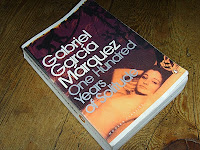About the Author: Dava Sobel is an award winning writer and former New York Times science reporter who has contributed articles to Audubon, Discover, Life and The New Yorker. She has also been a contributing editor to Harvard Magazine, writing about scientific research and the history of science.
The Review: Longitude is a story about a Yorkshire carpenter John Harrison and his quest to claim the prize of £20,000 offered by Parliament in 1714 for solving the problem of calculating longitude. Determining your position at sea had long been a problem and depended much on luck as skill. It had puzzled scientists of the age and Parliament tool the unprecedented step of offering a reward for a solution. Using his knowledge of how a sailor calculated the time from a fixed position he set about creating a portable time piece which would sustain the rigours of the sea and also keep accurate enough time to calculate the ship's longitude.
All members of the group read this book and enjoyed it. Many of the group remarked about his dogged determination and his tenacity in pursuing his goal in the face of strong crticism and rivalry from the mosgt prominent and celebrated members of the scientific community. He built his prototypes in his shed with carpentry tools and his own skilled hands with no plans as such. He suffered sea sickness on his voyages after which he was accused of 'fixing' the result. He eventually after 40 years was finally awarded the prize he so richly deserved.
The story was written in a skillful way and the complexities of the story were accessible and very readable. All the members present said that they enjoyed it even those who are not necessarily scientifically inclined!
No books were offered at this session and each member selected their own Christmas read and will talk about it at the next meeting.
The members of the group retired to a local hostelry to partake of some Christmas cheer and seasonal fare!
